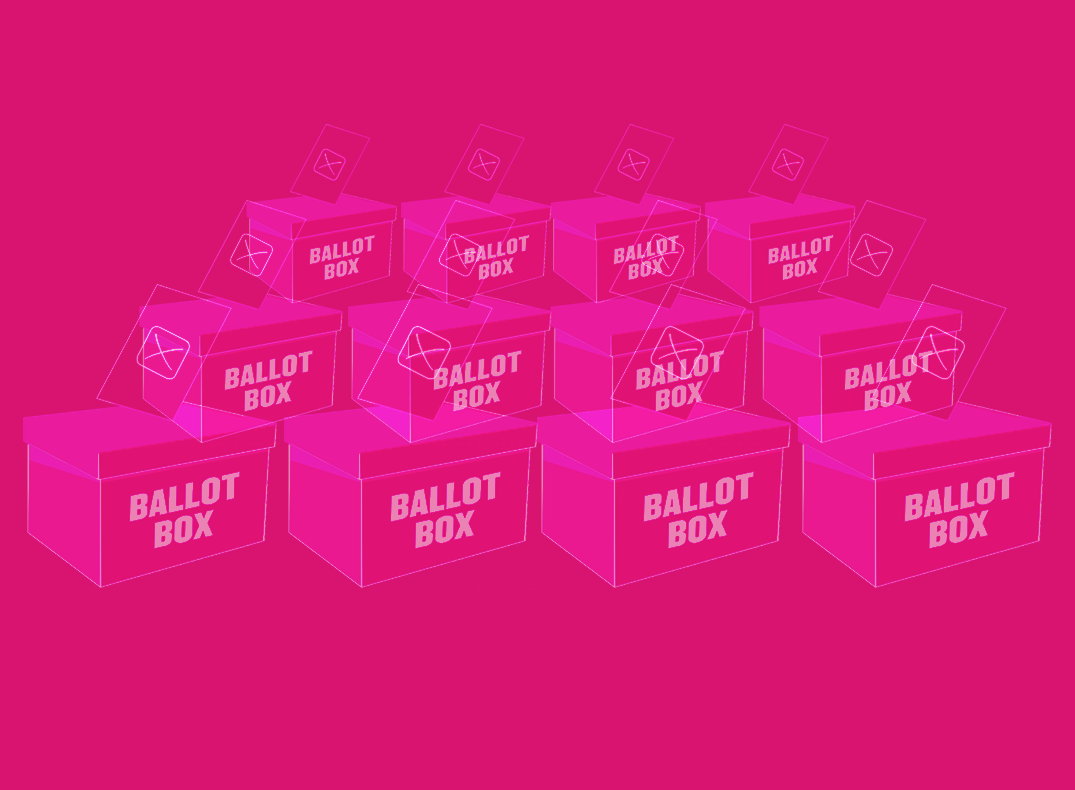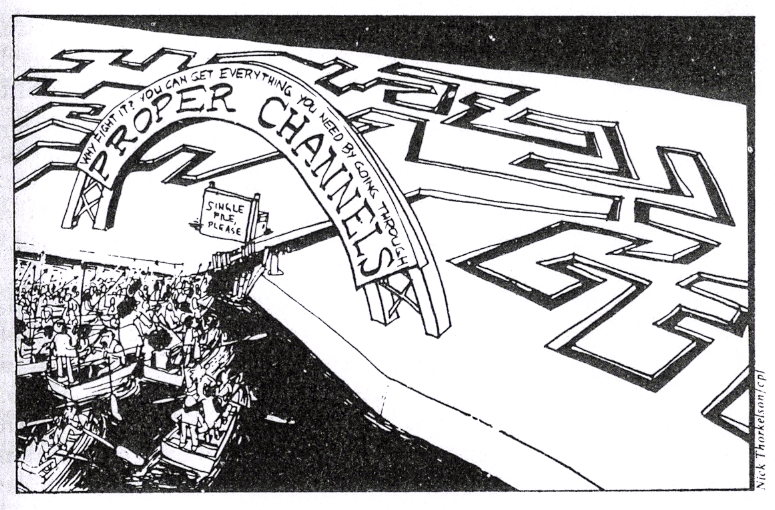Whatever the outcome of the election, we need to keep fighting on the ground
We are all desperate for a reprieve from the punishment the Tory (and Lib Dem) governments have inflicted on us in the UK over the last decade. And we know the stories with the fairytale endings: we’re waiting for a hero to rescue us. After all this misery, a movement has been built behind the Labour leader, Jeremy Corbyn, a movement with actually socialist policies. We feel we’d give anything for Labour to win the election, and a lot of us are – we are canvassing, phone banking, registering voters, talking to our communities, families and colleagues. Momentum have called this “a once-in-a-generation chance to change the country”. To most of us, living in a society where disabled people commit suicide, sick people die in hospital corridors and children eat food out of bins, faced with a global climate crisis of unimaginable proportions, this election really does feel like our last hope. But, comrades, there is another (and another, and another).
The movement around Corbynism has as its roots the same desires as the global wave of struggles we have seen emerging. In Hong Kong… in Ecuador… in Chile… in Bolivia… in Catalonia… in Indonesia… in Lebanon… in Haiti… in Colombia… in Iraq… in Guinea… in Algeria… in Egypt… in Iran… in France… in Kurdistan… wherever you look, shit is going down.
All of these struggles seem to come down to the choice the world is facing: the cruelty of neoliberalism, the brutality of power, the horror of fascism, mass extinction and climate devastation, in all of its contradictions, versus a better world for everyone. That struggle is being played out right now in the electoral struggle between the Labour and Conservative party, yes. But this is just one of many stages, one of the many arenas where this historical fight continues. Rosa said it best: the choice is still “socialism or barbarism”.
So in that context, we have to remember that getting Corbyn into No. 10 this December is an important battle, and one that we will try to win, but it is not the whole war. We have to look further than the here and now. We are part of history, and history is happening, and it’s happening everywhere, and it won’t stop whether we win or lose this election.

We challenge the idea that this is a ‘once in a lifetime opportunity’. This idea suggests that there is no power and no change outside of elections. This is the idea of those who only recognise the power of parliament. But we know from history that the truth is closer to the opposite: no change has ever been made in our favour without strike and struggle and social conflict. Power is in the streets, homes, and workplaces.
Where are we now?
So where are we now, how do we situate ourselves in history, and what should we do next? The last decade and beyond has seen an onslaught of hyper-individualism, austerity and gentrification, designed to re-impose the capitalist “work or die” discipline to all areas of life. These onslaughts have decimated people’s capacity for autonomy and for self-organised working class action – and this is a deliberate outcome of the neoliberal project, which targets all forms of collectivism, even those of state paternalism.
The neoliberal project is one of class power, the attempt to destroy workers’ rights in order to re-accumulate capital in the hands of the capitalist class. The crisis of 2008 temporarily brought Capitalism to its knees, and everything since has been neoliberalism on steroids and business as usual. Familiar motifs are thrown up: attacks on workers’ rights and the safety net of the welfare state on the one hand and a ramping up of neo-colonial and extractavist tendencies on the other. The trains break down, but hey, you can always watch shows on Amazon Prime on your iphone full of coltan from Congo. Your wages suck but chocolate and clothing are still cheap. Rents are up but you can always sublet your sofa to pay for your broadband. It’s dystopia, but more boring than we knew it.
These things we see in the news every day. What happens more quietly is the extra burden placed on the third factor in the accumulation of capital: the means of social reproduction. The demands of Capital are too much for workers to bear without (unpaid) social and emotional labour. Someone needs to raise your children, cook your food, care for your gran and fuck your boss, right? So, the third feature: patriarchal fascism rears its ugly head, and the rights of women and migrants are quashed in order to keep the costs of social reproduction down.
Where next? Building power
We know that in response to these crises and the struggles against them, we need to be building a different type of power. We need to disrupt the flow of capital to be able to push demands and reverse the one way flow of wealth. We need to make the conditions under which we’re being forced to live visible, and we need to take control of them. We need to build strong social relations with each other. We need to find ways to sustain and reproduce ourselves, to eat, to care for each other, to love and work outside of capital. These are the principles of the social strike which has been fundamental to Plan C for years. A win via the ballot box will support our ability to do these things, but even if we can get Labour elected, it will not be the long term solution that we need.
To deal with the crisis of Capitalism, we need to push for a major break with capital and state rule over society. This will require the development of a culture of mutual aid and the construction of our own institutions in order to strengthen the capacity of movements to take direct action. The eventual goal will be to then set in motion a wave of transnational struggles that can fundamentally re-order society towards a communist horizon.
Concretely, what does this mean? It means we have to be in control of the means of our own social reproduction: the way we reproduce our everyday lives. We have to be able to feed, care for and house ourselves, and we have to be in a position to take over our workspaces and turn them over to our needs. We need to build renters unions and co-operative housing, we need militant workers unions, we need care creches that do not depend on feminised labour, and mental health support that empowers us and doesn’t leave us at the mercy of a punitive state. We need access to land to grow our own food and brew our own beer, hosting our own events in our own bars and cafes or make the spaces we frequent part of a movement. We need to common the resources we have and obtain the resources we need.
These institutions play a double role: they strengthen our capacity to struggle in the face of continuing assault from the neoliberal state, but they also allow us to step into the roles that the state currently holds when it withdraws during crisis. This is the manner in which we eventually build hegemony. When Capitalism and the state refuse to meet the basic needs of people, but we can and do, then that’s when we’ll be winning.
Back to the election
So what does Corbynism mean to us in the context of these global struggles? One thing it means is that large numbers of people have been inspired and politicised, but have also become part of a structure that cycles around the electoral system. Another is that socialist ideas have managed to make their way into the mainstream media and are more in people’s consciousnesses than before. Most importantly for us is that a Corbyn electoral victory would be the first significant rupture against the neoliberal capitalist project in the short term. It could act as a political barricade for us to push forward from, particularly if it can be leveraged to rebuild these institutions that we’re lacking. If it happens, then the deep state and big capital will view the Corbyn led government as a major threat. They will attempt to nullify this threat as soon as possible. In this instance, the success or failure of the Corbyn project will be the power of grassroots society to resist the reaction. And that will depend on us controlling the institutions.
After the election, succeed or fail, what next? The answer lies beyond elections; it lies in all of us; it lies in movements. The idea of one hero, one election, one moment is a myth our society sells us; it can paralyse us from taking action. What we desperately need to be doing is reorganising society so that we are able to meet our own needs, so that we control our own social reproduction.
Forget heroes. After the election, we on the left will need to regroup, to meet, and to keep building the institutions outside of state and capital that we need to win.
Plan B+ Cluster



